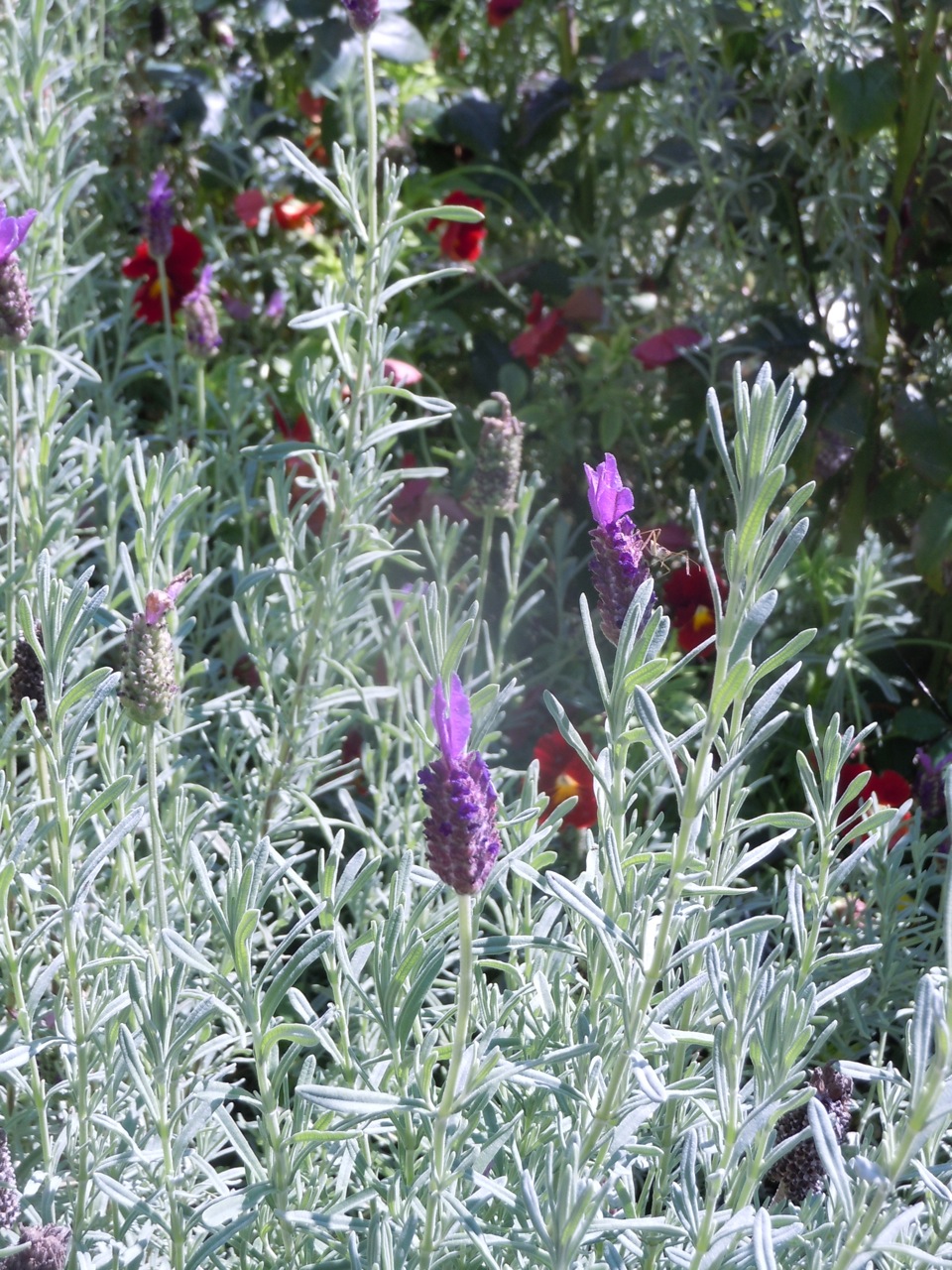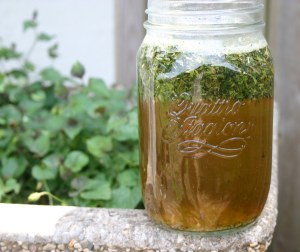âFlowers always make people better. Flowers are sunshine, food and medicine to the soul.â Luther Burbank
Whether you have a sore throat or a sore hip, your prescription for optimum health may be as close as your garden. Since the dawn of humanity, even before recorded history, herbs and plants have been used for medicinal purposes. Ancient cultures including the Chinese and Egyptian documented on papyrus the benefits as early as 3000 B.C. One fourth of pharmaceutical drugs we find on the market today are derived from botanicals. According to the World Health Organization, approximately 80% of the earthâs population depend on herbal remedies as primary health care.
The falling autumn leaves signal the beginning of the influenza season as most of us rush to our local internist or drug store for the updated flu shot. I have already been vaccinated and now am preparing my first aid kit with natural remedies from my garden pharmacy. Many fruits, vegetables, herbs, seeds, and leaves that are growing in your garden can be harvested not only to be added to your dinner menu, but, to boost your immune system, clean wounds, calm bites, reduce fevers, and arrest pain. Always consult your physician before beginning any new regimen and of course, if you need medical attention, seek a physician.
Here is a short list of my favorite common specimens and the ailments they relieve.
Mint: Spearmint, peppermint, hyssop, or any mint except pennyroyal (poisonous), is not only great for making your breath smell fresher, but is useful for soothing headaches, reducing fatigue, calming stomach aches, fighting nausea, and keeping colds and flu at bay. For indigestion or diarrhea, chew on peppermint leaves. Nosh on mint raw, add it to salads, garnish dishes, or make mint tea. Mint is one of the wonder drugs.
Catnip: Besides making cats euphoric, catnip relieves cold symptoms, toothaches, flatulence, and breaks fevers. It is a member of the mint family, can be eaten raw or made into teas. Pregnant women should not consume catnip as it may induce contractions.
Rosemary: This Mediterranean herb is part of the mint family also. Itâs called the âremembranceâ plant because it improves circulation to the brain. The oil in the flowers act as antibacterial and anti-fungal agents. Add rosemary to meats on the barbecue grill.
Sage: The name says it all. Salvia, derived from the Latin, salvere, meaning to be saved. Sage is a lifesaver as it aids in multiple ways. Sage reduces diarrhea, relieves cramps, kills bacteria, minimizes inflammation, reduces swelling, and fights colds. Make a poultice or salve for cuts, burns, and bruises.
Red Clover: It may be growing in your lawn or you may use it as a cover crop. The pink flowers can be made into a broth to ease coughs and colds.
Allium: Increase your intake of onions, garlic, leeks, shallots, and chives not only for the aromatic culinary delights, but also if you suffer from arthritis, rheumatism, or joint pain. Researchers have found dialyl disulphide, a substance found in alliums inhibit enzymes that cause damage to joint protective cartilage. Raw or cooked the delicious allium appear to boost your immune system. When we were kids, we even put a clove of garlic in our ears with a bit of olive oil to battle earaches. Garlic is reputed to keep vampires away, too.
Parsley: After a garlic infused meal, a bite of fresh parsley sprigs freshen your breath. Parsley also inhibits the secretion of histamines, which cause allergies and hay fever. A tea of parsley seeds or leaves is also helpful as a diuretic or laxative.
Dandelion: We all have dandelions sprouting somewhere in our gardens. Instead of cursing these tough weeds, embrace them as a nutritious addition to your diet to enhance the elimination of toxins. Dandelions may be used as a diuretic to help with PMS symptoms. Chop the leaves and add them to salads ramping up the intake of vitamin C and beta carotene.
Elderberry: Hippocrates named his elderberry tree a âmedicine chestâ in 400 BC. The blue/black berries made into jams, syrups, and wines are high in antioxidants, vitamin C, and iron.
Grape: Grind ripe grapes into a juice and drink without adding any other liquid to relieve migraines.
Winter savory: You use it to flavor stews, meat, and soups, but did you know that the leaves are effective antiseptics and also an ointment for insect bites and stings?
Lady fern: Roll some leaves in the palm of your hand and mash them to sooth minor burns, stings, and cuts.
Lavender: What is a garden without the soothing smell of lavender? Besides being a bee magnet, rubbing the flowers or leaves between your fingers then inhaling the fragrance is a sure stress reliever and tension liberator. If you are feeling depressed or anxious, lavender soothes the soul. Make a tea of lavender to induce sleep or use the petals in the bath as aromatherapy to bring on the calm.
Lavender
Sunflower: Itâs not just the seeds that are nutritious, but a tea made from the leaves works as an astringent, expectorant, and fever reducer. Use sunflower tea to treat colds and coughs.
Aloe Vera: This is a plant that everyone must have around the house. For burns and minor abrasions, pop open a leaf and rub the jelly on the wound to keep it from getting infected. Aloe is a great mild laxative when added to water and alleviates heartburn and sunburn.
Cabbage: Crush a handful of leaves, wrap in a cloth, and apply to forehead as a compress to help with headaches. When the compressed leaves dry out, replace them with fresh leaves.
Lemon: I use every part of the lemon for a variety of health treatments. Before any speaking engagement, radio or TV appearance, I drink a hot concoction of Meyer lemon rinds, juice, and pulp mixed with mint, water, and honey to clear my throat and enhance my vocal chords. Feel a cold coming on? Drink this brew with added torn lemon leaves, shredded ginger root, and Echinacea flowers. To clean my hands after gardening, I cut a lemon and rub them over my dirt stained digits. Want lighter, brighter locks? Squeeze the juice of any lemon on your hair and enjoy the sunshine. Migraine? Grind the peel and apply as a paste to the forehead.
Chamomile: Use fresh or dried florets and leaves to making a tummy calming tea. Chamomile helps steady jittery nerves and anxiety.
Rose: The fruit of the rose is the rose hip, one of the richest plant sources of vitamin C, high in vitamin A, B, and the antioxidant lyopene. Eat raw, cooked, or brewed to prevent colds and flu as well as an anti-inflammatory to relieve the pain of arthritis. Use the petals of rose to make a lovely scented rose water for an astringent, skin toner, and body bath.
Apple: Filled with antioxidants, pectin, and fiber, apples fight tooth decay, decrease risk of diabetes, lower cholesterol, protect against Parkinson, cancers, and perhaps Alzheimerâs diseases, prevent cataracts, gallstones, and boost the immune system. An apple a day will keep the doctor away.
These are just a smattering of the plant based healing that you will find in natureâs drug store, also known, as your backyard garden. If the year was 1692 and I lived in Puritanical Salem, Iâd be hung as a witch for prescribing these âdevilishâ herbal remedies. Since itâs 2013 in Lamorinda, Iâll keep stirring the cauldron of healthy natural choices and caution you to use these powerful potions wisely.
Happy Harvest. Happy Halloween Haunting. Happy Gardening and Growing.


![apples[1]](https://www.vapresspass.com/wp-content/uploads/2013/10/apples1-300x225.jpeg)
![lavendar[1]](https://www.vapresspass.com/wp-content/uploads/2013/10/lavendar1-150x150.jpeg)



